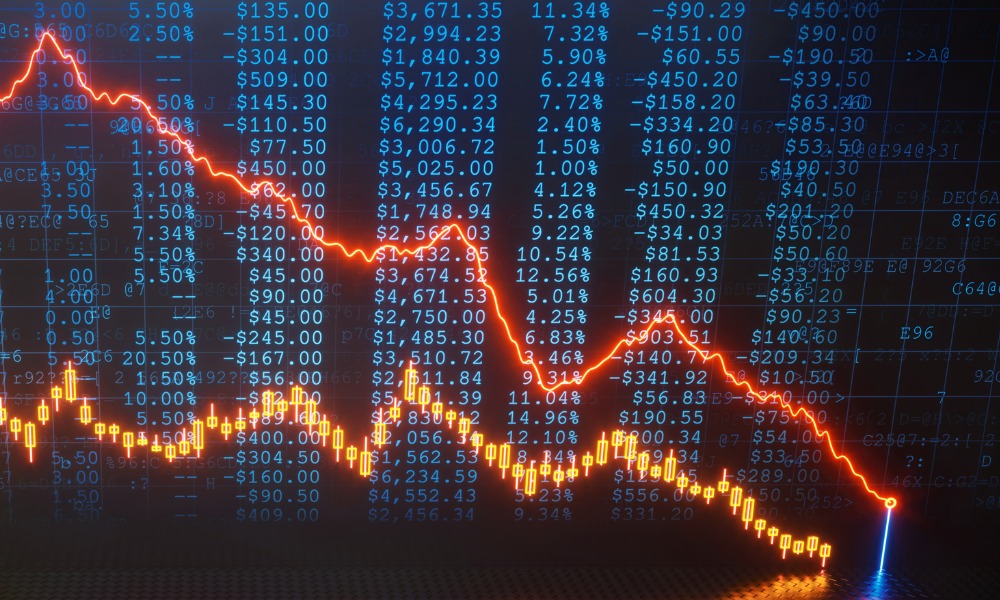Inflation battle is the key as an aggressive BoC would likely impact economic growth

Global money markets are watching carefully for signs of potential recession in major economies, but how worried should we be?
This week, Deutsche Bank broke ranks as the first major Wall Street bank to suggest that the US economy could be in recession by early 2023 as inflation forces the Fed to make steep increases in interest rates.
While the German bank’s house view is a mild recession rather than the decimation of the financial crisis, it also cautions that the actual outcome could be somewhere between the two.
But what about Canada?
A report from Scotiabank economists is more optimistic for the Canadian economy, citing expected strong economic growth this year and next, even as they expect the Bank of Canada (BoC) to have hiked rates to 3% by early next year.
The report from René Lalonde and Farah Omran says the risk of Canadian recession over the next four quarters remains low, based on inflation peaking at 6% for this year and easing to 3% in 2023.
Potential risks
If there was to be a further escalation of the war in Ukraine, stagflation could result from rising commodity prices and supply chain disruption that could lead to a mild demand-driven recession in Canada in the second half of 2022.
But the BoC may ease back on the trajectory of rate rises in this scenario with a 2% ceiling by the end of 2022 and holding in 2023.
However, the economists warn that inflation at 7% in the second half of 2022 would set the scene for a monetary policy-induced recession around one year later.
That’s because the BoC would need a 4.25% rate to bring inflation back down to its 2% target.
Focus on inflation
With Deutsche Bank an outlier on Wall Street with its talk of US recession, another major wealth firm has joined the voices urging caution about focusing on the R-word rather than concentrating on rising prices.
“Positioning portfolios for recession means deciding that the Fed will fail to win a game in which it ultimately controls nearly all the cards and sets nearly all the rules,” wrote Mark Haefele, chief investment officer at UBS Global Wealth Management. “Many investors we speak to should do more to position for inflation — a clear and present fact — than recession, which is still only a future possibility.”



